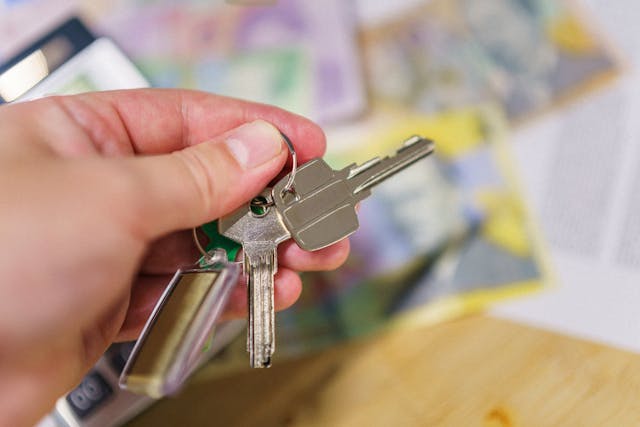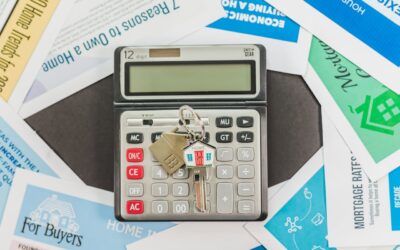Understanding what happens if you don’t repay your bridging loan can help you avoid any financial penalties and ensure that you navigate the process more smoothly.
Here, we’ll take a look at what the consequences might be, what you can do to reduce risks and what steps to take if you do find yourself struggling with repayment.
What Is A Bridging Loan, And Why Is Paying It Back Ontime Important?
A bridging loan is a short-term, unregulated loan designed to “bridge” a gap between transactions. They are usually shorter than a year and are mostly used by investors due to their speed of processing.
Like any loan, it’s incredibly important to pay it back on time. These loans are structured with the expectation of a clear and actionable pay back strategy, for example selling a property, refinancing or selling other existing assets.
Bridging loans can be great tools for wealth growth and generation, but their success depends upon the borrower’s ability to pay it back within the agreed-upon timeframe, otherwise the interest can compound, and quickly.
What Are the Common Reasons For Not Repaying A Bridging Loan On Time?
Despite some plans being seemingly watertight, even the best-laid plans can come into problems. There are a number of factors that can cause delays in repayment.
These include:
Delays In Property Sales
If your exit strategy involves selling a property, delays in the sale can push you beyond your loan term. Issues like buyers dropping out, survey delays, mortgage delays or problems in the chain can all mean unexpectedly missed deadlines.
Construction Issues
For those using bridging loans to fund property renovations, it’s important to bake time in for any unexpected delays. For example, problems with regulators, late material delivery and being let down by contractors can all contribute to projects not being finished on time.
Personal Issues
Unforeseen personal circumstances, like illness or accidents, can prevent you from fulfilling your repayments on time. Having a plan B or a partner can be a good way to curb any risks in this regard.
Running Out Of Funds
Even with careful planning, unexpected costs can push your project over budget. This can stall progress and stop you from completing the work or securing the sale needed to repay the loan.
What Are the Consequences Of Defaulting On A Bridging Loan?
Not repaying your bridging loan on time is considered a default and can lead to a number of consequences, depending on whether the loan is regulated or unregulated.
See our guide here on the difference between regulated and unregulated loans.
Whilst the initial agreement will detail any repercussions that are specific to your situation, some common penalties include:
Increased Interest Rates
Many lenders will impose a higher interest rate known as default interest once you miss a payment or fail to repay the loan at the end of its term. This is usually made clear in the original loan agreement, so it will never be a surprise charge.
Additional Fees
Lenders may also ask for additional fees in the event of a default. These can range from late payment fees to regular account fees. Again, these will be detailed upfront, so will never be imposed unexpectedly.
Loss Of Equity In Assets
Usually, the loan is secured against the equity owned in another property. If the default leads to repossession of the property, you could lose any equity you have built up in it.
Property Repossession
Repossession is the most extreme consequence of defaulting on a bridging loan and is usually a last resort that a lender will work to avoid. However, if you can’t repay the loan, the lender can take legal action to recover the debt, which can include the loss of your property.
What Should You Do If You Cannot Repay Your Bridging Loan On Time?
If you find that you can’t repay your bridging loan on time, it’s important to act quickly. Here are some steps you could take:
Contact Your Lender Immediately
The first step is to reach out to your lender as soon as you realise there may be an issue with paying back the loan. Open communication can help you find a solution before the situation gets worse. As the loan terms can be flexible, many lenders will be willing to work with borrowers who are open about their difficulties.
Request An Extension
If the issue will be resolved quickly and with a more certain deadline, you might be able to negotiate a payment extension. While this may mean additional fees, it can buy you a bit of extra time and save on any bigger financial penalties.
Explore Refinancing
If your current exit strategy is no longer viable, consider refinancing the loan. This could involve securing a new loan with better terms or moving to a traditional mortgage.
Consider A Quick Property Sale
If your loan relates to a property, you might consider selling the property quickly, even if it means accepting a lower offer. This can help you pay the loan back and avoid more severe consequences like repossession.

Seek Financial Advice
Consulting with a financial advisor or a bridging loan specialist can help you explore other options.
Liquidate Other Assets
If you have other assets that can be liquidated, this can help cover the bridging loan repayment. While it may not be an ideal solution, it can ensure you get the loan paid back quicker.
The Importance Of Paying Back A Bridging Loan
Bridging loans can be a great tool for short-term financing, but they need to be repaid on time.
Understanding the consequences and taking steps to manage repayment can help you avoid financial difficulties.
If you find yourself struggling with repayment, the key is to act quickly, communicate with your lender, and explore all available options to resolve the situation.
To speak to a Bridging Loan expert, visit Blue Square Capital today.


